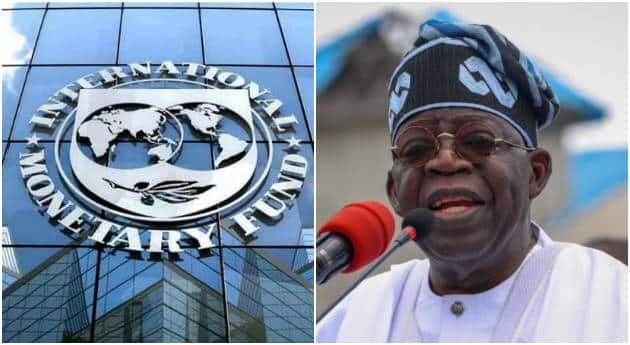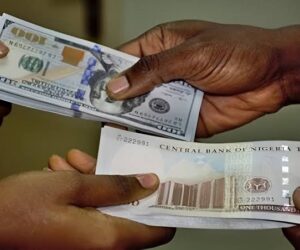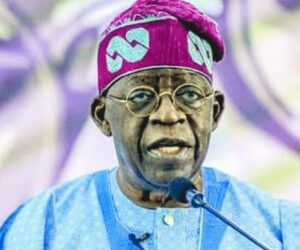Nigeria, Africa’s biggest economy by size and population, has been excluded from the International Monetary Fund’s (IMF) latest ranking of the continent’s fastest-growing economies.
The new figures show that smaller nations such as Benin Republic, Côte d’Ivoire, Rwanda, Uganda, and Ethiopia are now leading Africa’s growth path, outperforming Nigeria in GDP expansion and structural reforms.
Nigeria’s slow growth compared to peers
The IMF’s most recent data projects Nigeria’s growth at around 3.3 per cent in 2024, showing little progress compared to previous years.
Meanwhile, other African countries are recording much stronger growth rates, between 6 and 11 per cent, supported by better infrastructure, stronger institutions, and more diversified economies.
Nations such as Rwanda, Benin, Uganda, Ethiopia, Côte d’Ivoire, and Senegal are increasingly being recognised for their economic resilience and reform-driven policies.
Africa’s rising economic performers
According to the IMF, the following countries are expected to lead the continent’s growth between 2024 and 2025:
Country Projected Growth Rate Key Growth Drivers
Niger ~11.2% Oil and gas projects, high commodity prices
Senegal ~8.2% Diversified economy, infrastructure expansion
Libya ~7.9% Oil recovery, gradual political stability
Rwanda ~7.2% Tourism rebound, tech investment, sound governance
Côte d’Ivoire ~6.8% Cocoa exports, industrial expansion, infrastructure growth
Ethiopia ~6.7% Manufacturing and reform momentum
Benin ~6.4% Port growth, agriculture exports, fiscal discipline
Uganda ~6.0–7.5% Oil development, infrastructure growth, services sector
These economies are now considered the continent’s “new engines of growth”, largely because of their efforts to diversify away from dependence on commodities and maintain stable macroeconomic management.
Why Nigeria is lagging behind
Despite its vast resources, Nigeria’s economy continues to struggle under structural and policy challenges. The main issues include:
1. Overdependence on oil: The nation’s revenue base still relies heavily on crude oil exports, leaving it vulnerable to global price swings. Efforts at diversification have moved too slowly.
2. Inflation and currency volatility: Persistent double-digit inflation and naira instability have weakened consumer spending and investor confidence.
3. High debt burden: A large portion of government revenue is used to service debt, leaving little room for social and capital investment.
4. Policy inconsistency: Frequent policy changes and weak implementation reduce investor trust and hinder growth outcomes.
5. Infrastructure and energy deficits: Poor electricity supply and transport networks raise costs for businesses, discouraging production and manufacturing.
6. Population pressure: With a population of over 220 million, Nigeria’s GDP growth still trails population growth, limiting improvements in per capita income.
Regional growth momentum
Across the continent, growth remains robust. The African Development Bank (AfDB) forecasts that Africa’s economy will expand by 3.8 per cent in 2024 and 4.2 per cent in 2025—above global averages.
In West Africa, the subregion is projected to grow around 4 per cent, lifted by strong performances in countries like Benin, Côte d’Ivoire, and Senegal.
East African economies such as Rwanda, Ethiopia, and Uganda also continue to post solid growth, supported by political stability, export diversification, and steady investment inflows.
The impact on Nigeria
1. Falling investor interest: Slow economic expansion makes Nigeria less attractive compared to countries with faster-growing and more predictable markets.
2. Worsening poverty levels: Economic growth below population growth continues to trap millions in poverty, as inflation erodes earnings.
3. Macroeconomic risks: Fiscal imbalances and inflationary pressure threaten the country’s ability to attract affordable financing.
4. Need for deeper reforms: Analysts insist Nigeria must adopt stronger fiscal and structural reforms to restore growth and stability.
What Nigeria must prioritise
To reclaim its place among Africa’s growth leaders, Nigeria will need to:
Diversify its economy: Invest in agriculture, technology, manufacturing, and services to reduce dependence on oil.
Improve fiscal discipline: Enhance tax revenue, curb wasteful spending, and focus on infrastructure.
Stabilise the naira: Ensure transparent forex management and sound monetary policy to strengthen investor confidence.
Develop infrastructure: Expand power generation, roads, and logistics to boost productivity.
Enhance business environment: Simplify regulations, guarantee policy stability, and strengthen property rights.
Invest in education and healthcare: A skilled and healthy population is vital for sustained development.
Promote good governance: Curb corruption, ensure accountability, and make public spending more transparent.
A warning sign for Africa’s giant
Nigeria’s exclusion from the IMF’s latest list serves as a reminder that population size and natural resources are not enough to guarantee prosperity.
Smaller nations are overtaking Africa’s largest economy through consistent reforms, fiscal prudence, and innovation.
With the right policy direction and political will, Nigeria can still regain momentum. But without urgent and credible reforms, it risks remaining behind the continent’s fast-emerging growth champions.








